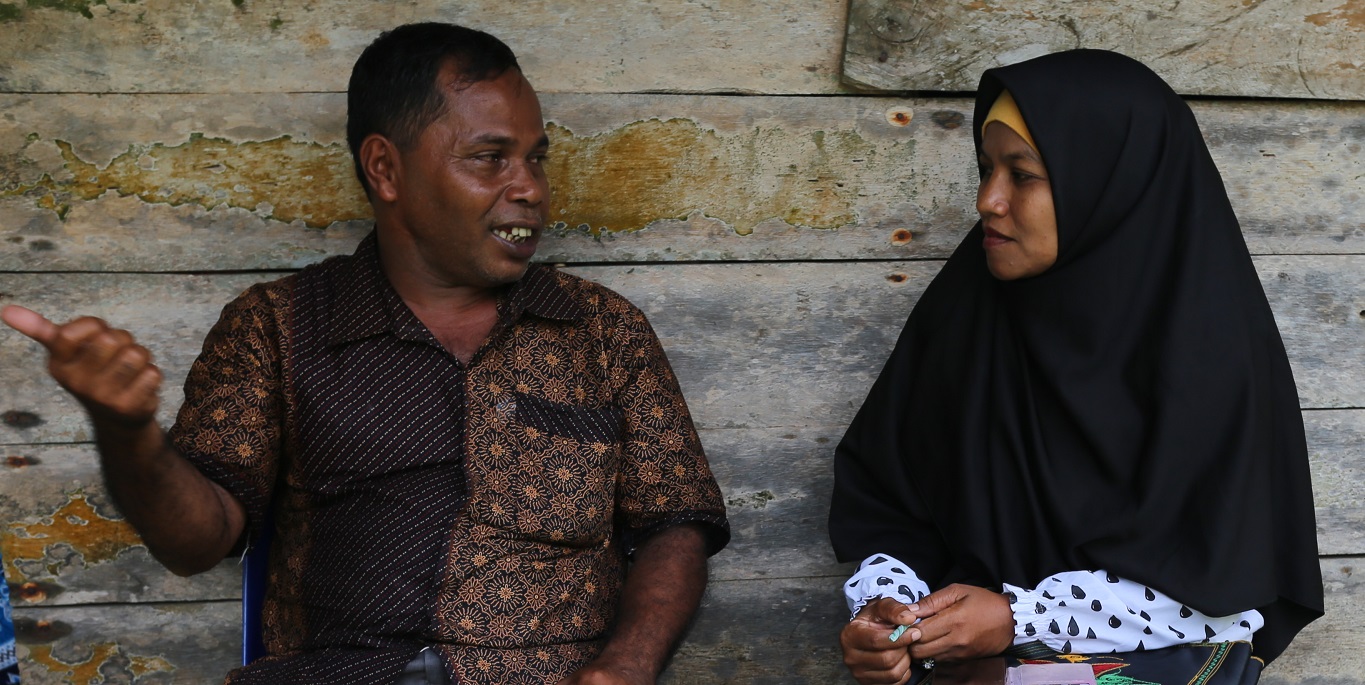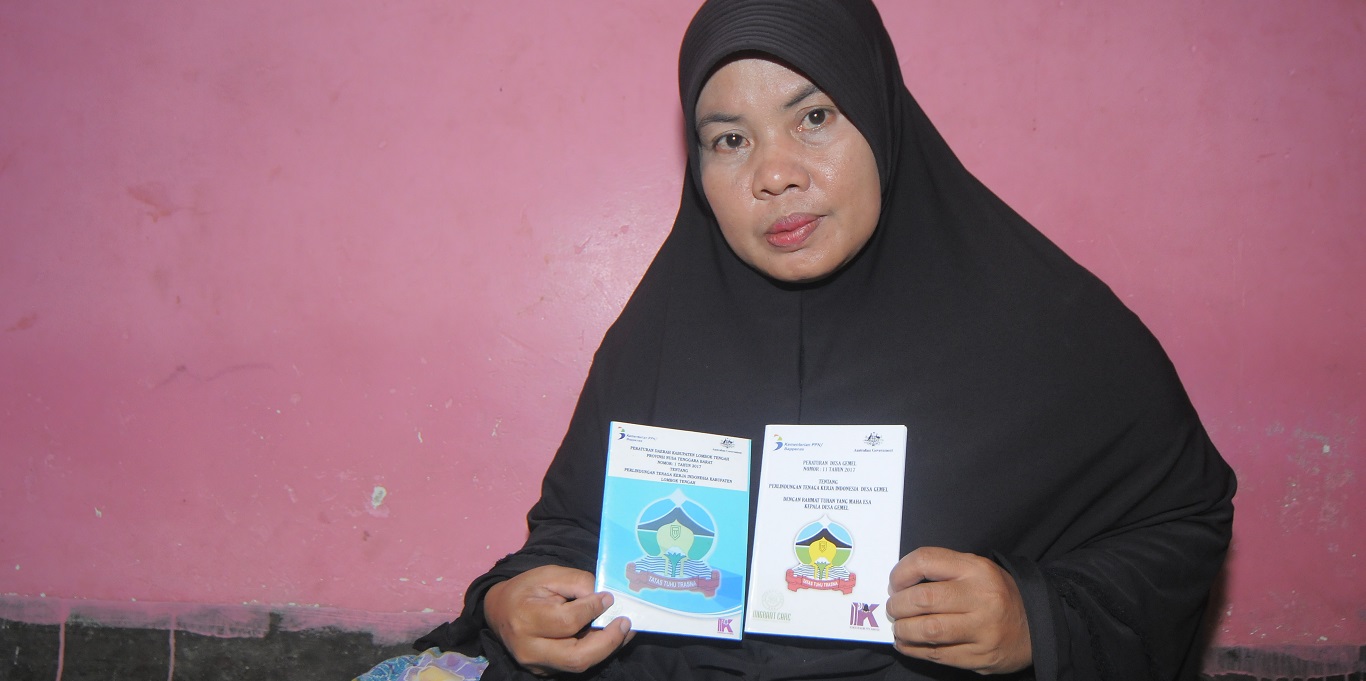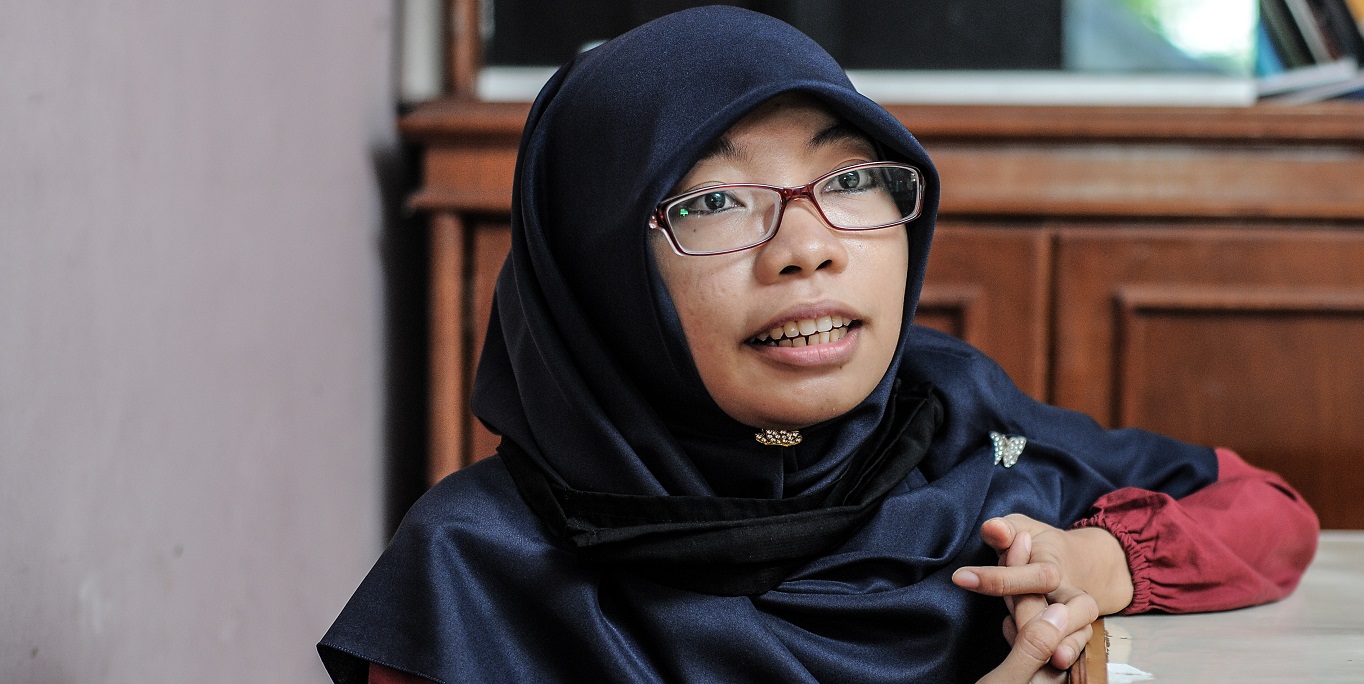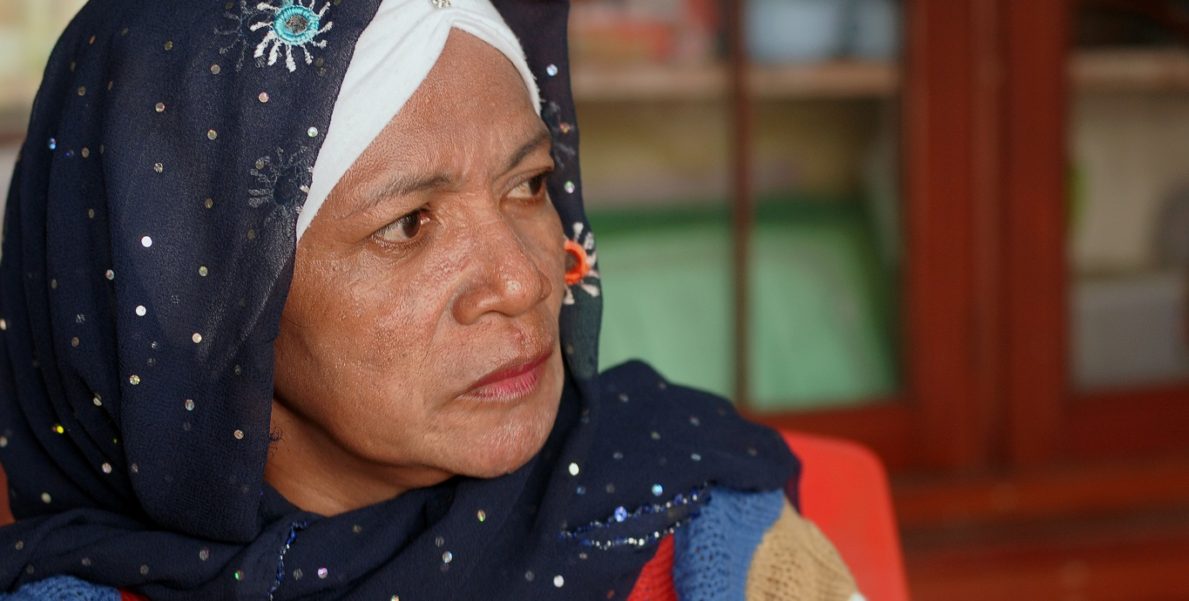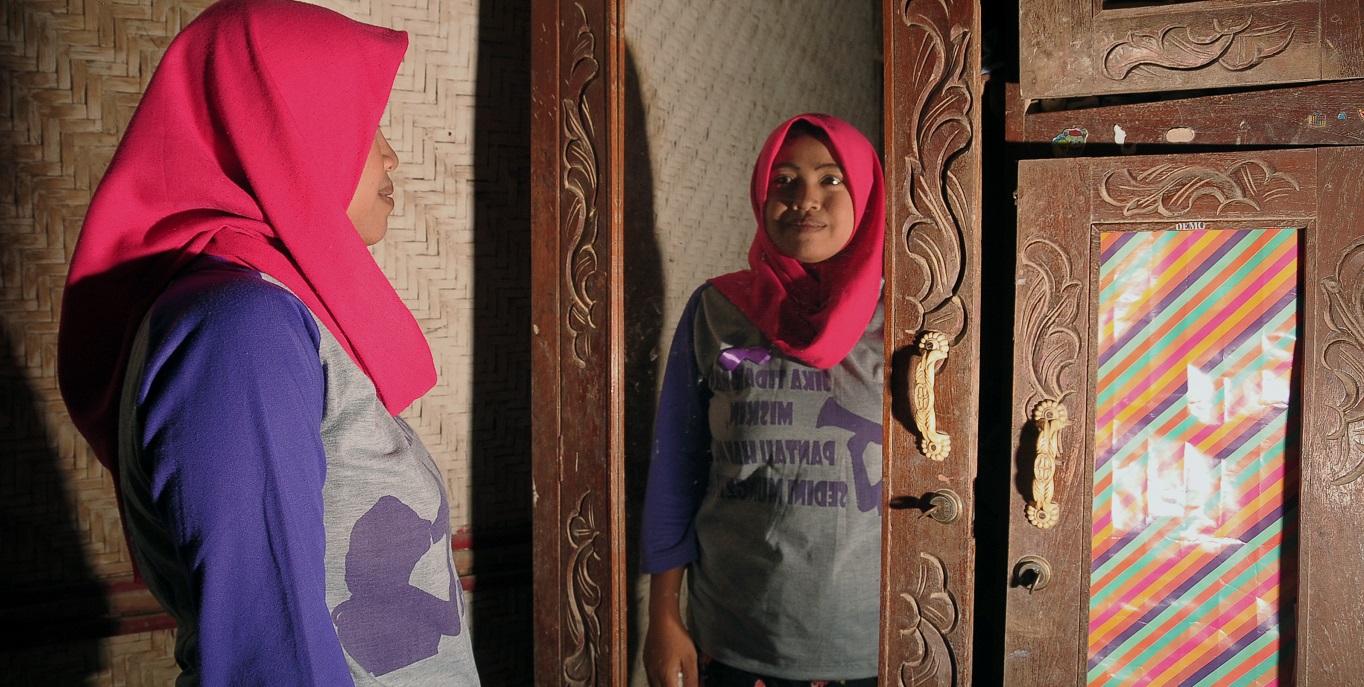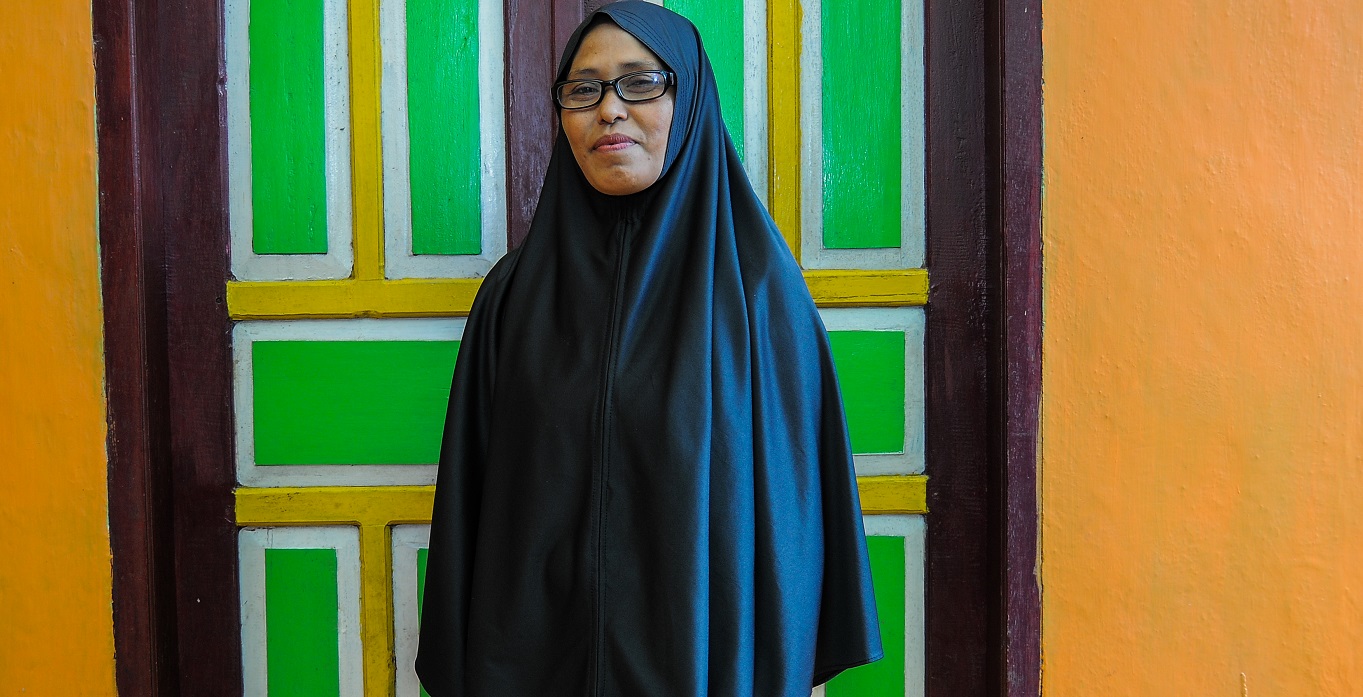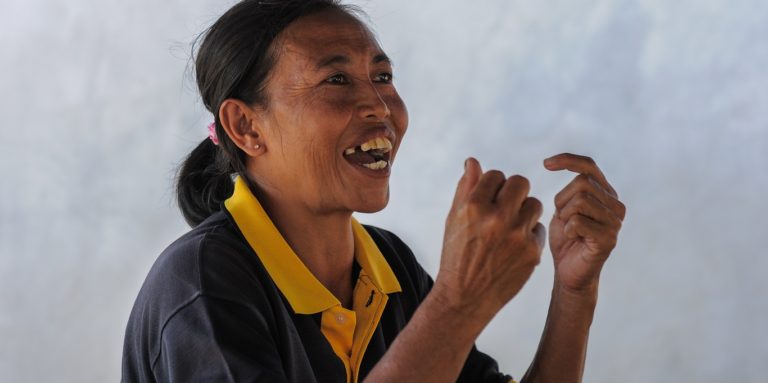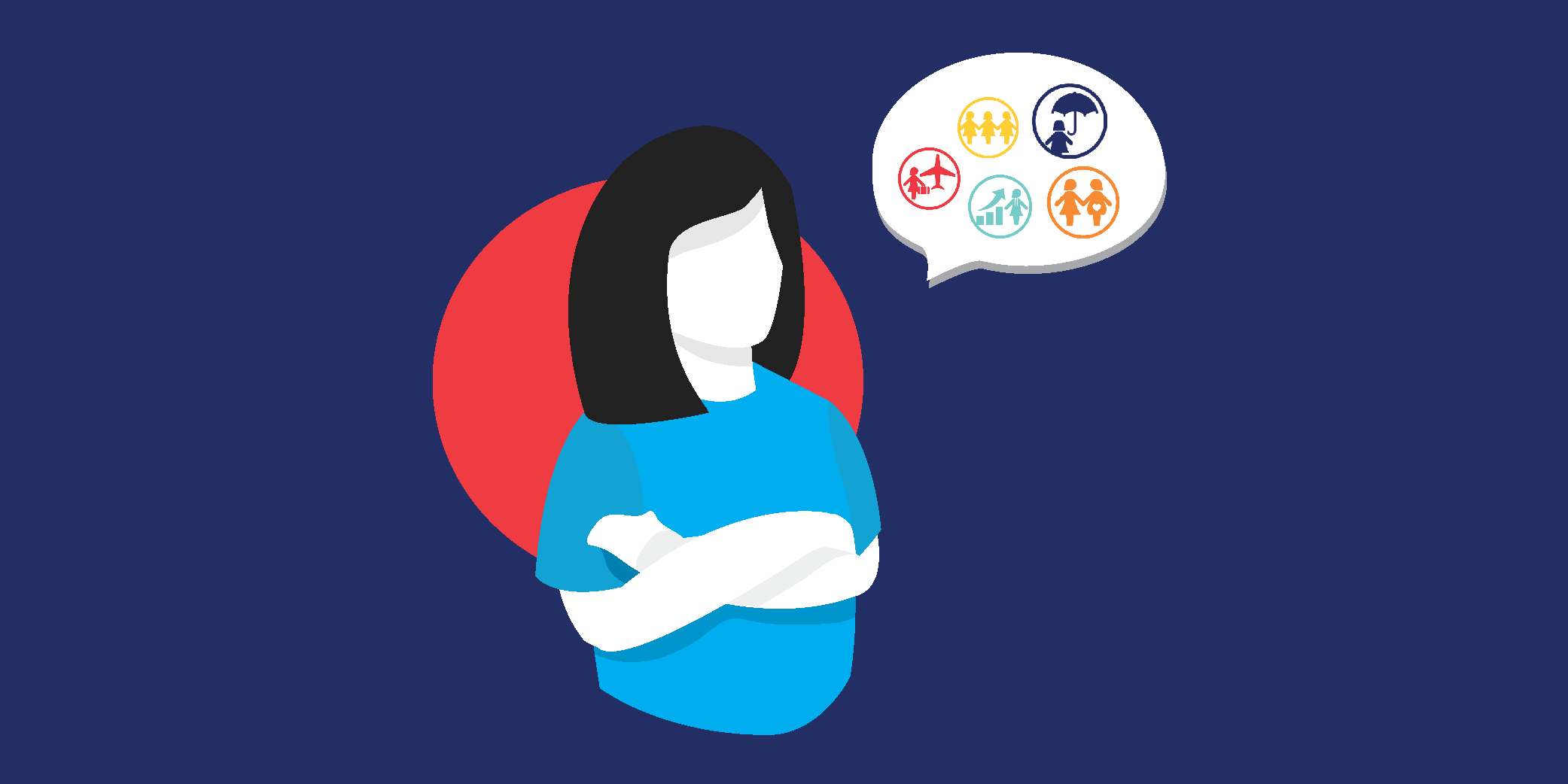Stories
At-Taqwa ‘Bank’: Financial Products Provided by a Group of Women
29 December 2017Penulis: admin
They have all kinds of financial products. You name it: from health insurance and life insurance, to all types of saving plans, such as for education, festive/religious celebrations, and voluntary savings plans. These are some of the financial products provided by the women of At-Taqwa, a community group in Sungai Ambangah village of Kubu Raya Sub-district in West Kalimantan, formed by PEKKA (Women Heads of Household). And they’re just as good as any other plans offered by our national banks.
According to Endang, one of the At-Taqwa members, these women have been running their own financial products for quite a while. It started with life insurance where they pay IDR 20,000 a person.
“It used to be very difficult to arrange a funeral when somebody died in this village, especially with what we earn. People tend to panic. Not only did they have no idea what to do, they had no money either. So when the group got together, one of us suggested we should have life insurance for all us,” she explained.
The women of At-Taqwa never had prior trainings on insurance – it’s just something they picked up from learning-by-doing, and they have been acutely diligent about keeping their ledgers updated by writing down every expense and income for the records.
From the IDR 20,000 they pay for their life insurance—which can be deposited at the beginning of the year—when the insured person dies, their dependents will benefit from a payment of IDR 250,000. Three At-Taqwa members have passed away and their dependants have received such payments. Given the insurance money has gone up significantly and there has been no deaths thus far, the group agreed to increase the amount to IDR 350,000.
“We pay IDR 1,000 for our health insurance every month. And since we already have our healthcare plan covered by BPJS (National Social Security System), it’s normally used to cover the cost of transport going to and from the community health centre. Health insurance helps too. I’ve used it before,” said Rukiyah, another member of the group.
Other than health and life insurance, the At-Taqwa group also manages numeorus other saving plans. One of the most common is SIMPEDI (education saving plan) – a fund collected to pay for children’s schooling. There’s no minimum amount that one has to deposit, it all depends on how much they can afford. SIMPEDI is normally paid during the monthly/bi-monthly meeting. Since it’s for educational purposes, the fund can only be claimed at the beginning of new academic year. The fund normally helps to pay for uniforms, books, stationary, and other necessary supplies.
“It’s similar to any other savings, and we can actually save it ourselves. However, chances are we might use it for something else, like shopping,” joked one of the members.
The procedure for SIMPAYA (savings for festive/religious celebrations) is pretty much the same. For the women whose children are no longer school-age, they are allowed to convert their savings to SIMPAYA. These women deposit however much money they have at every group meeting. SIMPAYA can only be claimed when Idul Fitri arrives. But the common practice is that they immediately use it to cover the remaining instalments they have once the money is cashed in.
The voluntary savings plan is another product managed by the At-Taqwa group. This plan serves as a ‘deposit’ for any member who needs loan. Member can borrow up to 10 times of their saving plan. In other words, when a member has IDR 100,000 in their name, the ceiling for the loan they’re allowed to apply for is IDR 1 million. This voluntary saving plan can only be cashed in when all loans are already paid in full.
To top all the financial products run by At-Taqwa, they still have another saving scheme called arisan which is a form of rotating savings that pays out at fixed intervals. It’s an alternative to bank loans and other forms of credit. For these women, however, their arisan collects eggs and rice as opposed to money. Members are required to bring two eggs and half a kilo of sugar to every arisan. Since it is drawn by lots, the member whose name comes out gets to bring home all the eggs and sugar collected that day.
At every group gathering, these women set aside IDR 1,000 for what they call jimpitan– a kind of communal saving scheme. From that, IDR 500 is allocated to buy snacks for the jimpitan while the other half is kept for operational expenses such as transportation if there are functions they need to attend on behalf of the group.
They deposit the insurance money (health and life) on a monthly basis to an LKM (a microfinance institution).
“I used to be the one in charge of keeping the money. But I kept losing sleep at night because I was so scared somebody might try to steal it,” confessed Rukiyah.
Not exclusive to At-Taqwa, PEKKA’s members also have their own insurance.
“Our members’ insurance is more about accident insurance,” said Diana, one of PEKKA’s members. “This is for those who are mobile, so this insurance was listed in Bumiputera. We have the policy. A lot of our members come from various districts, for instance they have to go from Pontianak to Bengkayang, and they don’t have insurance. So it’s a way for them to have a safety net. Because we had an experience where a member had an accident before, so this insurance is really important.”
Insurance for PEKKA’s members requires an investment of IDR 50,000, however, the cost is split between PEKKA members—who give IDR 25,000 from their personal accounts, and LKM that contributes another IDR 25,000. (***)



